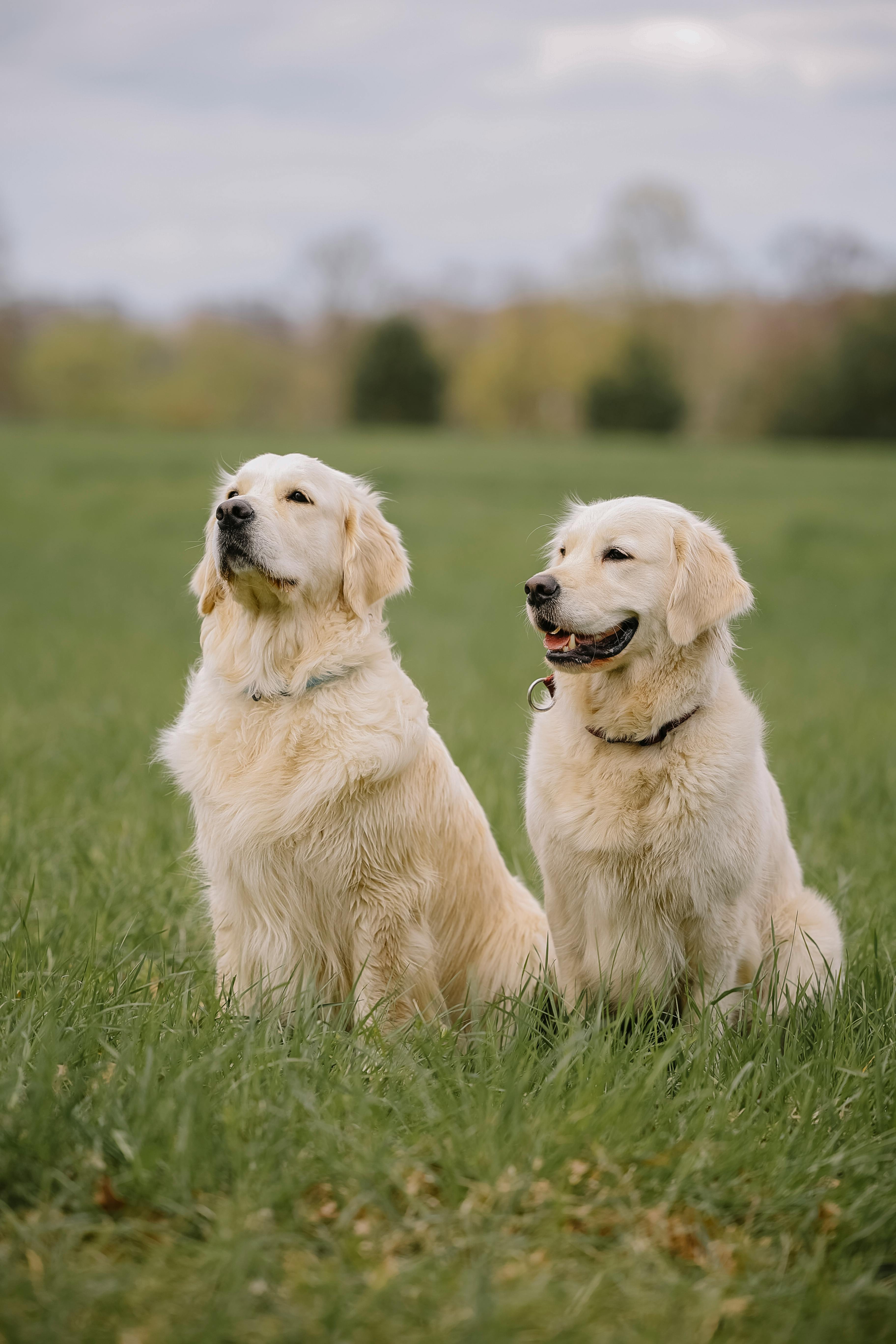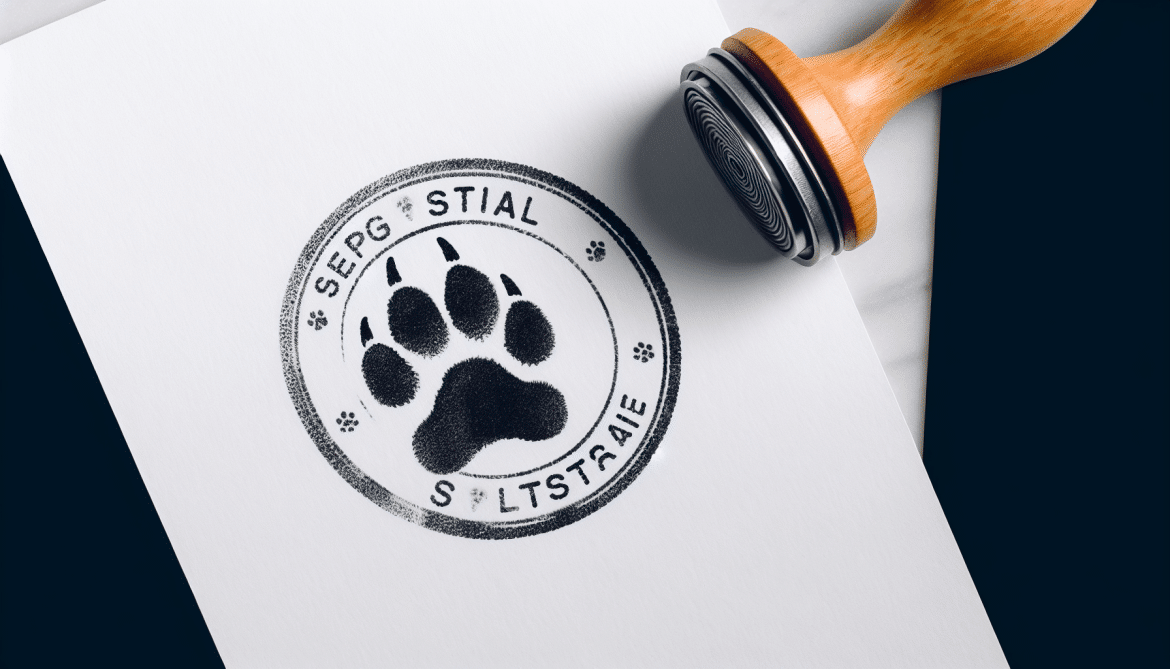Have you recently adopted a beautiful, unregistered dog and want to ensure that they have the proper documentation? In this article, we will guide you through the process of legally obtaining papers for your furry friend. From researching the necessary requirements to filling out the application, we will provide you with all the information you need to ensure your beloved companion is recognized as a legal member of your family. So, let's get started on this journey towards obtaining official papers for your unregistered dog and giving them the recognition they deserve!
Understanding the Importance of Registering Your Dog
Benefits of registering your dog
Registering your dog offers numerous benefits for both you and your furry friend. Firstly, it provides proof of ownership, protecting your dog from being claimed by someone else. This is especially important if your dog ever goes missing or gets lost. Registration also ensures that your dog's information is on record, making it easier to reunite you with your beloved pet in case of separation.
Moreover, registering your dog promotes responsible pet ownership. By complying with registration laws, you show your commitment to properly caring for your dog. Many local communities provide additional resources and benefits to registered dog owners, such as discounts on spaying/neutering services, obedience training classes, and even access to dog parks or other recreational facilities.
Drawbacks of not registering your dog
If you choose not to register your dog, you may face several drawbacks. Firstly, without proper registration, you have no legal proof of ownership. This can lead to disputes over ownership if someone else claims your dog as their own. Additionally, unregistered dogs may face legal consequences if they are found roaming or without proper identification. Fines and penalties can be imposed, and in some cases, the dog may even be impounded.
Another significant drawback is the limited access to various resources and services available to registered dog owners. Whether it's discounted veterinary care or participation in community events, these opportunities may be restricted without proper registration. Additionally, registering your dog allows your pet to be included in important health databases, making it easier for veterinarians to access crucial medical information if needed.
Why it is important to obtain papers for an unregistered dog
If you have an unregistered dog, it is essential to obtain papers to ensure your pet's legal status and protect yourself from potential disputes or legal issues. Registering an unregistered dog provides proof of ownership and protects against claims by others. It also enables you to access various benefits, services, and resources available exclusively to registered dog owners. Furthermore, registering your unregistered dog allows you to comply with local laws and regulations, promoting responsible pet ownership within your community.
Research Dog Registration Laws in Your Area
Understanding the laws regarding dog registration
Before embarking on the registration process, it is crucial to familiarize yourself with the dog registration laws specific to your area. Laws may vary depending on your city, county, or even state, so it is essential to research the regulations that apply to you. Familiarize yourself with requirements such as registration deadlines, fees, and any specific documentation that may be needed.
Identifying the governing authority for dog registration
Find out the governing authority responsible for dog registration in your area. This could be your local animal control agency, a municipal government office, or a specific registration department. Knowing the correct authority to contact will ensure you have the most accurate and up-to-date information regarding the registration process.
Researching the specific requirements for registering an unregistered dog
In addition to understanding the general registration laws, research any specific requirements for registering an unregistered dog. Some areas may have additional steps or documentation needed to register a dog that has not previously been registered. This could include proof of vaccinations, health checks, or even behavior evaluations. By knowing these specific requirements in advance, you can properly prepare for the registration process.

This image is property of images.pexels.com.
Gather Necessary Documentation
Proof of ownership
One of the essential documents needed to register your dog is proof of ownership. This can be in the form of a purchase agreement, adoption papers, or even a letter from a previous owner acknowledging the transfer of ownership. Make sure you have a copy of this documentation readily available to include with your registration application.
Proof of vaccinations and health records
Most registration processes require up-to-date vaccinations and health records for your dog. Ensure you have copies of all necessary vaccination certificates and health records from your veterinarian. This documentation not only demonstrates responsible pet ownership but also ensures the health and safety of your dog and others in the community.
Microchip information
If your dog has been microchipped, gather the relevant information, including the microchip number, registration details, and any associated paperwork. This information may be required during the registration process to confirm your dog's identity and ownership.
Any other supporting documents required for registration
Depending on your specific area's requirements, there may be additional supporting documents needed for registration. This could include documents related to your dog's breed or lineage, certifications for specific training or skills, or any other relevant information. Ensure you gather and prepare all necessary supporting documents to streamline the registration process.
Consult with a Veterinarian
Seek professional advice from a veterinarian
Before proceeding with the registration process, it is highly recommended to consult with a veterinarian. They can provide expert advice and guidance specific to your dog's needs, ensuring you are well-prepared for the registration process. Veterinarians can also inform you of any additional health checks or vaccinations that may be required for registration.
Discuss the process of registering an unregistered dog
Use the opportunity of your consultation with the veterinarian to discuss the process of registering an unregistered dog. They can provide valuable insights and guidance on the steps involved and answer any questions or concerns you may have. Their expertise will help ensure a smooth and successful registration process.
Get guidance on required vaccinations and health checks
During your consultation, ask your veterinarian about the specific vaccinations and health checks required for dog registration in your area. They will be able to advise you on any additional vaccines your dog may need and help ensure all necessary health checks are completed before submitting your application. By following their guidance, you can ensure your dog meets the registration requirements and remains in good health.

This image is property of images.pexels.com.
Complete Registration Application
Obtain the necessary registration forms
Contact the governing authority responsible for dog registration in your area to obtain the necessary registration forms. These forms can typically be obtained online, in-person, or by mail. Ensure you have the most recent version of the forms to avoid delays or errors in your application.
Fill out the application accurately and truthfully
When completing the registration application, be sure to provide accurate and truthful information. Include all required details about your dog, such as their name, breed, age, and any distinguishing features. Double-check your application for any errors or omissions before submission.
Attach all required supporting documents
Ensure you include all required supporting documents with your application. Attach copies of proof of ownership, vaccinations, health records, microchip information, and any other documentation specified in the registration requirements. Organize these documents in a logical order to make it easier for the registration authority to review your application.
Pay any applicable registration fees
Some registration processes may require a fee to be paid along with your application. Research the fee amount and the accepted methods of payment in advance. Be prepared to include payment with your application, whether it's in the form of a check, money order, or online payment.
Submit Registration Application
Follow the designated submission process
Follow the instructions provided by the governing authority for submitting your registration application. This may include submitting the application and supporting documents in person, by mail, or online through a designated portal. Ensure you adhere to the specified submission process to avoid any delays or complications.
Submit the application and supporting documents to the appropriate authority
Submit your completed registration application and supporting documents to the designated authority responsible for dog registration in your area. Double-check that you have included all necessary documentation and that your application is accurately filled out. Make copies of all submitted materials for your records.
Keep copies of all submitted materials
It is crucial to keep copies of all the materials you submitted during the registration process. This includes your filled-out application, supporting documents, and any receipts or proof of submission. These copies will serve as your reference in case any issues arise or if you need to provide proof of registration in the future.

This image is property of images.pexels.com.
Follow Up on the Application
Check the status of your application
After submitting your registration application, periodically check the status of your application. This can usually be done by contacting the registration authority or checking their online portal, if applicable. Stay informed about your application's progress and be proactive in addressing any potential concerns or delays.
Contact the registration authority for any updates or additional requirements
If you receive any updates or requests for additional information from the registration authority, promptly address them. Follow their instructions and provide any requested documentation or clarification. Open lines of communication will ensure a smooth and efficient registration process.
Be patient during the processing period
Registration processes may take some time to complete, so it is essential to be patient during this period. Avoid constant follow-ups or inquiries unless absolutely necessary. Respect the processing timeframes and trust that the registration authority is working diligently to complete your application.
Attend any Required Inspections or Interviews
If requested, schedule and attend any necessary inspections or interviews
In some cases, the registration process may require inspections or interviews to evaluate your dog's health or temperament. If requested, promptly schedule and attend these sessions. Cooperate with the authorities and provide any requested information or documentation to facilitate these evaluations.
Prepare your dog for any health or temperament evaluations
Before the scheduled inspections or interviews, take time to prepare your dog. Ensure they are clean, well-groomed, and properly exercised. Address any behavior concerns or issues that may arise during the evaluation. By preparing your dog, you can present them in the best possible light and increase the chances of a successful registration.
Address any concerns or requirements raised during the inspection
If any concerns or additional requirements are raised during the inspection or interview, take them seriously. Address these concerns promptly, whether it involves providing additional documentation, seeking behavioral training for your dog, or making necessary changes to comply with registration standards. This will demonstrate your commitment to responsible pet ownership and improve the likelihood of a successful registration.
Receive Registered Dog Papers
Wait for the registration process to be completed
Upon completing all the necessary steps and fulfilling the registration requirements, wait for the registration process to be completed. The processing time may vary depending on the registration authority and other factors. Exercise patience and be prepared to receive your registered dog papers in due course.
Receive the registered dog papers
Once the registration process is complete, you will receive the registered dog papers from the registration authority. These papers provide legal proof of your dog's registration and ownership. Review the documents carefully, ensuring all the information is accurate. Contact the registration authority if you notice any errors or discrepancies.
Verify the accuracy of the information on the documents
Take the time to verify the accuracy of the information on the registered dog papers. Check that your dog's name, breed, age, and any other details provided are correct. These papers are essential for future reference, so it is crucial that all the information is accurate and up to date.
Keep the papers in a safe and accessible place
Once you have verified the accuracy of the registered dog papers, keep them in a safe and easily accessible place. Consider making copies of the documents and storing them in different locations as a backup. These papers are valuable proof of your dog's registration and can be required for various purposes, such as traveling, insurance, or participating in dog-related activities.
Comply with Ongoing Registration Requirements
Renew dog registration within the specified timeframe
Dog registration typically requires periodic renewal within a specified timeframe. Stay informed about the renewal process and ensure you renew your dog's registration on time. Failure to do so may result in penalties or the loss of registration status. Mark important renewal dates on your calendar or set reminders to help you remember these important deadlines.
Update any changes in ownership or contact information
If there are any changes in ownership or contact information, promptly update the registration authority. This can include changes in address, phone number, or if you transfer ownership of your dog to someone else. Keeping your dog's registration information up to date ensures accurate records and prevents any potential disputes or complications in the future.
Ensure your dog's vaccinations and health records are up to date
Maintaining up-to-date vaccinations and health records for your dog is not only a registration requirement but also crucial for your dog's well-being. Regularly schedule check-ups with your veterinarian and ensure your dog receives any necessary vaccinations or treatments. This ensures compliance with registration requirements and helps keep your dog healthy and protected.
By following these steps and thoroughly understanding the importance of registering your dog, you can ensure legal compliance, protect your pet, and enjoy the benefits of responsible pet ownership in your community. So take the time to register your furry friend and embark on a fulfilling journey as a registered dog owner.


